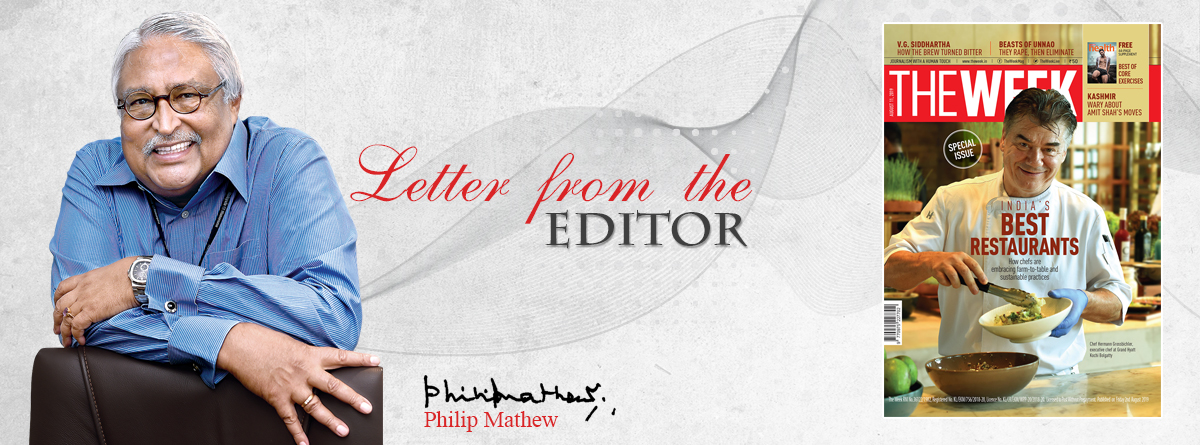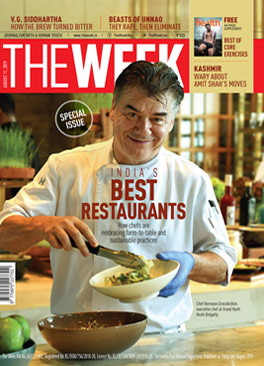THIRTY-THOUSAND paras of paddy. That is how much my grandfather once harvested from a single crop, writes my father in his autobiography. A para is a squat, potbellied, cylindrical wooden tub. Dried paddy would be poured into it and levelled at the top to form one unit. A para holds about 10kg of paddy. Interestingly, both the vessel and the unit had the same name. Let me not confuse you further.
What brought me to para and paddy is the main story of this week’s cover package. Principal Correspondent Anjuly Mathai begins with the story of Chef Anumitra Ghosh Dastidar and writer Shalini Krishnan; the duo crisscrossed India for three years in search of indigenous varieties of rice. Frankly, I expected their collection to end up in a seed bank. But, it had an edible and elegant ending. No, I do not want to give the story away.
The article is a fitting opening to THE WEEK’s annual special on India’s best restaurants. The cover package is accompanied by listings powered by our panel of experts from seven cities—Delhi, Mumbai, Kolkata, Chennai, Hyderabad, Bengaluru and Kochi. Sometimes readers do write to tell me that their favourite restaurant is missing from the list. As a foodie, I totally understand their feelings and apologise for hurting them. Food is intensely personal. And, of late, quite divisive, too.
As I write this, the internet in India is buzzing with retweets, reactions and shares about a Zomato client’s irate tweet. He cancelled his food order because the delivery staff was not from a certain religion. @ZomatoIN attracted praise for its pithy reply to him: “Food doesn’t have a religion. It is a religion.” It is not a new thing to connect food to the divine. My mother considered a wasted morsel to be an affront to God. I am sure every Indian mother threatens her children the same thing: “Don’t waste food. Otherwise a day will come when you will yearn and weep for what you threw away.” Waste had no place in our kitchen, right from the point where ingredients were bought, cleaned and cooked, to the point where it was served and eaten. Modern restaurants are now waking up to zero-waste kitchens and that is another interesting story in the package.
Another surprise from this package was the realisation that Chef Thomas Zacharias of The Bombay Canteen is the grandson of our family doctor, Dr Sebastian Zacharias. The good doctor lived just across the road from my father’s office. Young Thomas seems to be an apple that has fallen far from the tree, and what a wonderful thing it has been. An evangelist for indigenous ingredients, Thomas’s latest menu stars wild vegetables used by the tribal communities of Maharashtra.
Coming back to the harvest story I opened with, I have always felt that taste is often tied closely to the landscape. Or, as the French put it, terroir. Even water tastes different from place to place, let alone food. My grandfather’s harvest came from a place that is without parallel in India. It came from paddies below sea level, from the heart of Kuttanad—from the lowest point in our vast country (2m below mean sea level).


